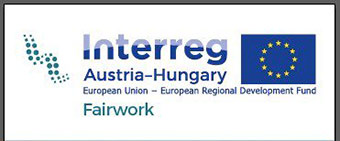Through cross-border cooperation and an awareness-building campaign, this project is creating a safe and fair working environment for the Burgenland (Austria) – Western Hungary region’s nearly 20 000 commuters.
- 04 October 2019
By building new networks and enhancing the existing cooperation between authorities on both sides of the border, this project has successfully helped reduce the burden on the cross-border commuter.
Every day, up to 20 000 Hungarians commute to Austria for work. In fact, one out of every four workers in Austria’s Burgenland region is a cross-border commuter. Unlike traditional migration, where migrants live and work in another country, these commuters remain residents of Hungary. Many of them not only work in Austria, they own businesses there too.
From language and cultural issues to figuring out how to manage social security, taxes, and healthcare across two different systems, this short-term migration creates unique challenges for authorities. By addressing these labour market issues, this project aims to bring big benefits to the entire region.
Long-term solutions
Let’s say worker A is from Hungary, but commutes to Austria every day for work. He doesn’t speak German, and only has a limited understanding of the legal framework governing his employee rights. For the authorities, this lack of understanding could lead to a financial loss for worker A and, when multiplied across thousands of workers in a similar situation, increase the risk for wage and social dumping.
To help reduce these negative effects, this project is ensuring closer, long-term cross-border cooperation. To start, researchers conducted a comprehensive cross-border analysis of the region’s commuting patterns. Next, they used this information to better understand the needs of commuters, identify opportunities for improvement, and develop a roadmap for implementing solutions.
This roadmap served as the basis for discussions between relevant authorities and working groups. The outcome of these discussions is the cross-border cooperation agreement. With the agreement in hand, organisations that represent workers are being trained to help commuting workers better navigate the foreign labour market.
The project in action
An example of this project in action can be seen in a recent safety awareness campaign it helped organise. With many cross-border commuters employed in the construction industry, safety is always an issue. Due to a lack of language skills, combined with the competitive market, there have been too many occupational safety issues. To remedy this situation, the project created flyers in both German and Hungarian that contain information about safety measures on construction sites.
Total investment and EU funding
Total investment for the project “Fairwork - Fair Labour Market Conditions in the Pannonia Region” is EUR 924 326, with the EU’s European Regional Development Fund contributing EUR 785 677 through the “Interreg V-A - Austria-Hungary” Cooperation Programme for the 2014-2020 programming period. The investment falls under the programme’s priority “Better public administration”.

